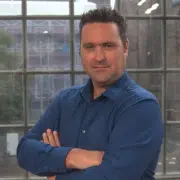What do we do if China attacks Taiwan? How can we counter disinformation? Can we secure the supply of natural gas? And who exactly won the war in Afghanistan? Catch up with the latest HCSS Digest:
“April 10, 2024, 2:30 a.m. Prime Minister Rutte convenes his cabinet for an American emergency request. China has just attacked Taiwan.” Biden wants us to block the Straits of Malacca. What will the Netherlands do? What is Europe doing? Sounds farfetched? A what if? No, conclude HCSS analyst Joris Teer and HCSS Director of Research Tim Sweijs in an article for newspaper NRC : we should already think about the answer to those questions today.
We proudly announce that the UK Foreign, Commonwealth and Development Office has awarded HCSS a grant for a research project on the climate-conflict nexus. The project seeks to identify and analyze the causal pathways that lead from climate change to violent conflict on the basis of field work and new causal modelling approaches by our innovative HCSS Datalab.
Disinformation continues to exacerbate existing political polarizations, with effects ranging from discrediting measures against the COVID-19 pandemic to inciting mass violence against the very institutions of democracy itself. How can we advance rules of the road for governments and for social media platforms? Louk Faesen, Alexander Klimburg and Tim Sweijs propose a coregulation model and DISINFO-ISAC in their latest report, Red Lines & Baselines: Towards a European Multistakeholder Approach to Counter Disinformation.
HCSS analyst Louk Faesen subsequently gave a presentation to the European Parliament’s Special Committee on Foreign Interference in all Democratic Processes in the European Union.
Dutch universities are asking the government for access to intelligence to assess their collaboration with Chinese scientists. In a briefing for the Dutch Parliament’s Committee on Education, Culture and Science, HCSS analyst Joris Teer mentioned robotics, photonics, chips and artificial intelligence as domains in which China is looking for Western knowledge, het Financieele Dagblad reports.
On Thursday October 21st, the Jason Institute will host the free event Geopolitics of Energy: Nord Stream 2 at the Leiden University Campus in The Hague. HCSS analyst Irina Patrahau will join the event as a guest speaker.
Looking back: after another Western intervention failure in Afghanistan, the question we may ask is: who actually won America’s Longest War? What lessons did the West learn? And how should these be applied in future security challenges such as the great power competition with China? Read the latest policy brief by HCSS Subject Matter Expert Friso Stevens as he reflects on the Afghan war.
A whistleblower got his hands on 40 gigabytes of video, photos and documents about torture in Russian prisons. It’s clear there is a major problem with torture in the Russian prison system, HCSS Russia expert Helga Salemon comments in De Dag on NPO Radio 1, and the West, she says, is looking away: “International attention for ‘the rotten system’ is important, but the question is whether the impact of the whistleblower material is big enough to really change it.”
Effective opposition has once again become more difficult in Russia, explains HCSS Russia expert Helga Salemon in EenVandaag. “The opposition has been beheaded: Navalny is in prison, the other leaders have been chased abroad. You can no longer control the people. People no longer easily take to the streets.”
HCSS analyst Patrick Bolder spoke at Space Cafe II on the Space Campus in Noordwijk this week, the meeting place for the international space sector, where he talked about geopolitical developments and the need to use space for European and Dutch security.
Last week, HCSS published a study on the declining security of supply of natural gas in the Netherlands. The conclusions of the paper received a lot of attention in the national media because of the current extremely high energy prices. Authors Jilles van de Beukel and Lucia van Geuns were frequently asked for commentary in newspapers, radio and TV programs.
Gas is scarce and the prices are going through the roof. What caused this, and what can the government do to secure the supply of gas? Listen to the latest episode of our BNR podcast De Strateeg, with HCSS energy experts Jilles van den Beukel and Lucia van Geuns.
“An accelerated energy transition? Please! But in our current situation, the world is still largely based on fossil sources”, energy expert Lucia van Geuns commented in De Volkskrant. “We shouldn’t throw away our old shoes until the new ones are comfortably worn in.”
Gas and oil are not the only raw materials that are becoming more expensive. Coal also seems to be becoming a problem, Jilles van den Beukel commented this week on BNR Nieuwsradio. ‘In addition, an energy transition is imminent, with more demand for copper, heavy earth metals and lithium.’
“If we’ll have a mild winter, prices will gradually drop again,” Jilles van den Beukel told newspaper De Tijd. “But there is justifiable concern. The chance is maybe only 5 to 10% that something really goes wrong. But if that happens, the consequences are enormous.”
The transition to sustainable energy requires enormous amounts of hard-to-extract metals. To obtain these, we risk becoming dependent on dubious regimes again. In the latest episode of podcast Boekestijn en De Wijk : the geopolitics of your energy bill.
How is it possible that the ideal of globalization and international solidarity has been lost? Live from Nieuwspoort on October 21, in his “Great Geopolitical College” HCSS Fellow Jonathan Holslag analyzes how the West lost control of its own future.
It’s not China, Russia or an extreme president like Trump that threatens Europe, but corrupt populists who go for their own political and economic gain, writes Rob de Wijk in his column for Trouw. There’s only one answer: the EU needs to be strict.
Out Now: the September 2021 Quarterly Update from the Water, Peace and Security Global Early Warning Tool. It flags potential hotspots for water-related challenges in western Sahel countries, Afghanistan, Syria, Iran, Iraq, Turkey, and others.




